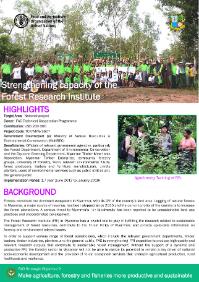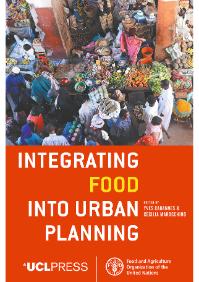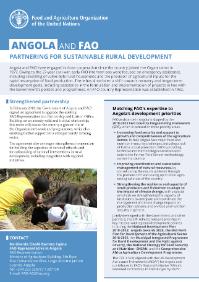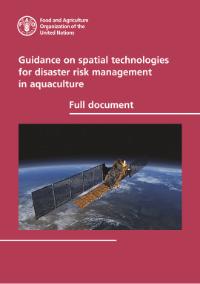Focal point
Location
The Food and Agriculture Organization of the United Nations leads international efforts to defeat hunger. Serving both developed and developing countries, FAO acts as a neutral forum where all nations meet as equals to negotiate agreements and debate policy. FAO is also a source of knowledge and information. We help developing countries and countries in transition modernize and improve agriculture, forestry and fisheries practices and ensure good nutrition for all. Since our founding in 1945, we have focused special attention on developing rural areas, home to 70 percent of the world's poor and hungry people.
Members:
Resources
Displaying 176 - 180 of 5074Strengthening capacity of the Forest Research Institute
The project brief includes information about the details of the project, the background, objective, description and key achievements of the project.
It also mentions about how the project will implement the operations to achieve Sustainable Development Goals of FAO in line with the Strategic Objectives of FAO.Through the project brief, the audience will get clear understanding on how the project operates and what advantages it will bring for the beneficiaries.Integrating Food into Urban Planning
The integration of food into urban planning is a crucial and emerging topic. Urban planners, alongside the local and regional authorities that have traditionally been less engaged in food-related issues, are now asked to take a central and active part in understanding the way food is produced, processed, packaged, transported, marketed, consumed, disposed of and recycled in our cities.
Manual para la preparación de datos geográficos para la herramienta de ASIS-País
Este manual tiene como objetivo familiarizar a los usuarios de la herramienta FAO-ASIS País con la conversión de datos del Sistema de Información Geográfica (SIG) a los formatos adecuados para alimentar la herramienta.
Este manual (1) forma parte de una serie de 3 manuales para el uso de la herramienta ASIS-PaísManual de usuario donde se describen los pasos a seguir para transformar los datos de información geográfica como mapas de uso actual de la tierra y regiones administrativas en el formato que requiere la herramienta ASIS-PAÍS.Angola and FAO
Angola and FAO have engaged in close cooperation since the country joined the Organization in
1977. Owing to the 27-year civil war, early FAO interventions were focused on emergency assistance,including resettling of vulnerable rural households and the provision of agricultural inputs for therapid resumption of food production. There has since been a shift towards recovery and longer-termdevelopment goals, including assistance in the formulation and implementation of projects in line withGuidance on spatial technologies for disaster risk management in aquaculture
This new guide describes the application of spatial technology to improve disaster risk management (DRM) within the aquaculture sector. DRM requires interrelated actions and activities to ensure early warning, prevention, preparedness, response and recovery for a wide range of natural, technological and complex disasters that can impact aquaculture operations and livelihoods.











